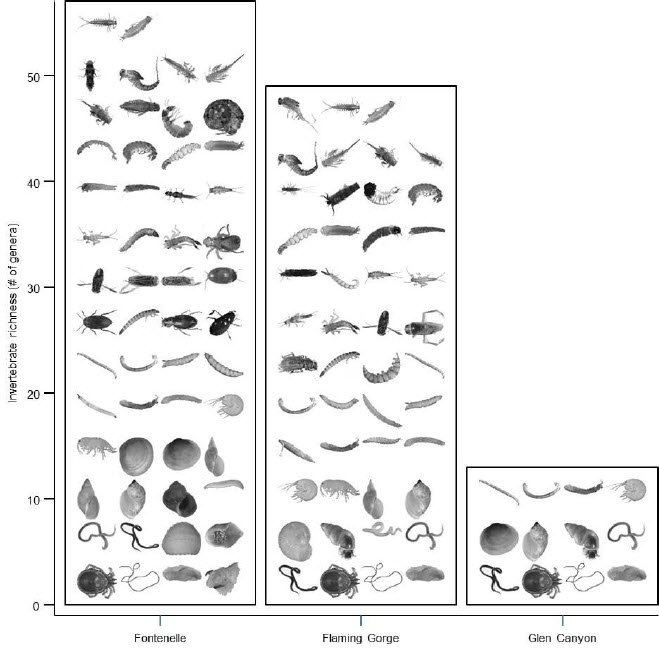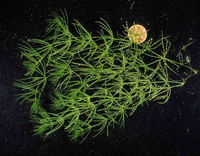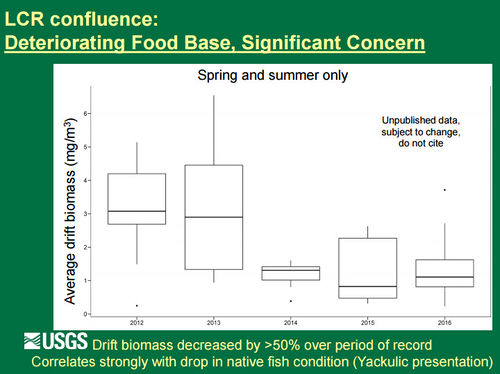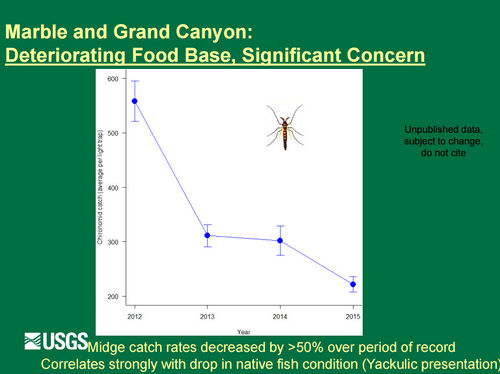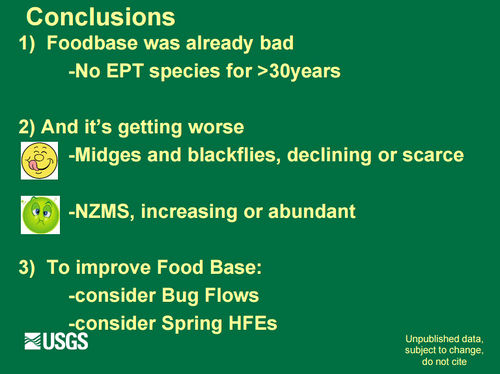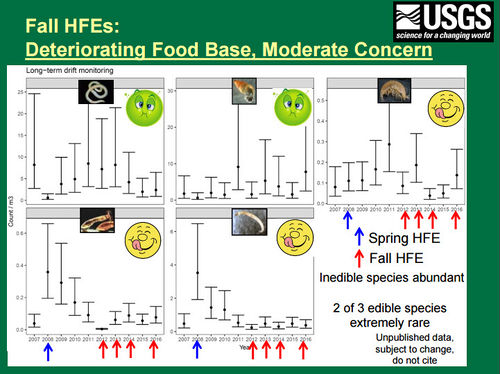Difference between revisions of "FOOD BASE"
Cellsworth (Talk | contribs) |
Cellsworth (Talk | contribs) |
||
| Line 25: | Line 25: | ||
=='''Aquatic Food Base monitoring below Glen Canyon Dam and into Grand Canyon'''== | =='''Aquatic Food Base monitoring below Glen Canyon Dam and into Grand Canyon'''== | ||
| − | Aquatic insects live in the water as larvae most of their lives, then emerge onto land for a brief period as winged adults. Sampling these emerged adults on land is therefore a useful tool for understanding the condition of the aquatic insect population that is in the water, particularly in large rivers where sampling the larvae on the river bed is impractical. | + | Aquatic insects live in the water as larvae most of their lives, then emerge onto land for a brief period as winged adults. Sampling these emerged adults on land is therefore a useful tool for understanding the condition of the aquatic insect population that is in the water, particularly in large rivers where sampling the larvae on the river bed is impractical. Aquatic insects have a terrestrial, winged adult life stage in which they leave the water and fly onto land in order to find a mate and reproduce. [https://www.usgs.gov/centers/sbsc/science/aquatic-insects?qt-science_center_objects=0#qt-science_center_objects] |
| − | + | ||
| − | Aquatic insects have a terrestrial, winged adult life stage in which they leave the water and fly onto land in order to find a mate and reproduce. | + | |
| − | + | ||
| − | + | ||
==[http://gcdamp.com/index.php?title=Long-term_Experimental_and_Management_Plan_(LTEMP) '''LTEMP Resource Goal for the Aquatic Food Base''']== | ==[http://gcdamp.com/index.php?title=Long-term_Experimental_and_Management_Plan_(LTEMP) '''LTEMP Resource Goal for the Aquatic Food Base''']== | ||
Revision as of 15:27, 21 January 2022
|
|
Aquatic Food Base monitoring below Glen Canyon Dam and into Grand CanyonAquatic insects live in the water as larvae most of their lives, then emerge onto land for a brief period as winged adults. Sampling these emerged adults on land is therefore a useful tool for understanding the condition of the aquatic insect population that is in the water, particularly in large rivers where sampling the larvae on the river bed is impractical. Aquatic insects have a terrestrial, winged adult life stage in which they leave the water and fly onto land in order to find a mate and reproduce. [1] LTEMP Resource Goal for the Aquatic Food BaseNo resource goal was identified for the aquatic food base. It was deemed more as "a means to an end" with regard to meeting goals for humpback chub, other native fish, and the rainbow trout fishery. Desired Future Condition for the Aquatic Food BaseThe aquatic food base will sustainably support viable populations of desired species at all trophic levels. Assure that an adequate, diverse, productive aquatic foodbase exists for fish and other aquatic and terrestrial species that depend on those food resources. |
| EPT as Biologic Indicators of Stream Condition |
Algae and Aquatic Macrophytes |
Aquatic Macroinvertebrates |
|---|
